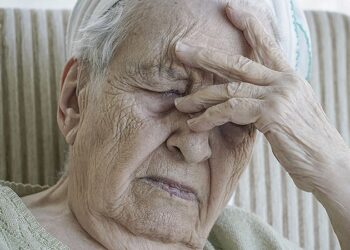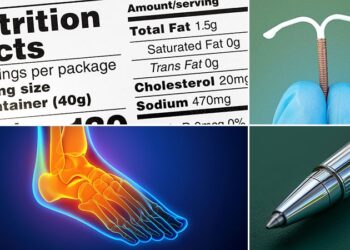
- A new advisory from the U.S. Surgeon General states that regular alcohol consumption, even in moderation, can increase the risk of certain cancers.
- The report shows that breast cancer has the highest alcohol-related risk for females while liver cancer and colorectal cancer are the highest risks for men.
- To help lower alcohol-related cancer risk, the Surgeon General recommends that cancer warnings be placed on the labels of alcoholic beverages, including beer and wine.
The top health official in the United States urges more public awareness of the cancer risks associated with drinking alcohol on a regular basis.
U.S. Surgeon General Vivek Murthy, MD, released a new advisory recommending that alcoholic beverages, including beer and wine, carry a warning about potential cancer risks. The recommendation was praised by the American Cancer Society (ACS).
The new guidelines, which will require approval from Congress, would inform consumers that drinking even moderate amounts of alcohol could increase the risk of developing at least seven cancer types, including:
- breast cancer
- colon cancer
- liver cancer
- throat cancer
- mouth cancer
- esophagus cancer
- voice box cancer
In the report, Dr. Murthy noted that alcohol consumption is the third leading preventable cause of cancer in the U.S., behind tobacco use and obesity.
“Alcohol is a well-established, preventable cause of cancer responsible for about 100,000 cases of cancer and 20,000 cancer deaths annually in the United States – greater than the 13,500 alcohol-associated traffic crash fatalities per year in the U.S. – yet the majority of Americans are unaware of this risk,” Murthy said in a statement. “This advisory lays out steps we can all take to increase awareness of alcohol’s cancer risk and minimize harm.”
A growing body of evidence warns of potential harms associated with alcohol consumption.
Other research has shown that regular alcohol consumption is associated with liver disease, brain damage, and weight gain.
“The direct link between alcohol use and cancer was first established in the late 1980s and evidence for this link has strengthened over time,” the Surgeon General’s report states.
Anna Lembke, MD, a professor of psychiatry and behavioral sciences at Stanford University in California, agreed.
“The evidence that alcohol causes cancer is reliable. People who consume alcohol have a right to know. It might make them think twice about consuming alcohol or encourage them to drink less,” she told Healthline.
Despite the known health risks of alcohol use, more awareness among the general public is still needed.
In the new report, Dr. Murthy cited a 2019 survey by the American Institute for Cancer Research, which showed only 45% of people in the U.S. recognize alcohol use as a risk factor for cancer. That compares with 91% who are aware of the risks associated with radiation exposure, 89% for tobacco use, 81% for asbestos exposure, and 53% for obesity.
“[The] advisory from the U.S. Surgeon General brings necessary awareness to the risks of alcohol consumption as it relates to cancer incidence,”
“It is imperative that people are made aware of the potential impact of alcohol consumption and are met with recommendations on how to reduce their risk.”
The Surgeon General’s report shows there were 96,730 cancer cases related to alcohol in the U.S. in 2019. Of these, 54,330 occurred in females and 42,400 occurred in males.
Of the 54,330 alcohol-related cancer cases that affected females that year, more than 80% (44,180) were breast cancer, which accounted for 16% of all breast cancer cases (270,000).
For males, Dr. Murthy reported the most serious alcohol-related risks were for liver cancer and colorectal cancer.
What’s driving alcohol-related cancer rates in males and females may vary due to various factors like an individual’s age or health status, but a key ingredient in alcohol could also play a role.
“There is extensive evidence from biological studies that ethanol (the type of pure alcohol found in all alcohol-containing beverages) causes cancer in at least four distinct ways,” Dr. Murthy wrote in the report. The four ways are as follows:
- Alcohol breaks down into acetaldehyde in the body. Acetaldehyde is a metabolite that can bind to DNA and damage it, thus raising the risk of cancer.
- Alcohol generates reactive oxygen species, which can increase inflammation and also damage DNA as well as proteins and lipids in the body.
- Alcohol can alter hormone levels, including estrogen. This can play a role in breast cancer risk.
- Carcinogens from other substances, especially tobacco smoke, can dissolve in alcohol, making it easier for those substances to be absorbed into the body. In particular, this process can raise the risk of mouth and throat cancers.
“It is well established that excessive consumption of alcohol is associated with multiple diseases and cancers including cardiovascular disease, liver disease and several cancers (liver, head and neck, breast, esophagus and colorectal in particular),” Anton Bilchik, MD, a surgical oncologist as well as the chief of medicine and director of the Gastrointestinal and Hepatobiliary Program at Providence Saint John’s Cancer Institute in Santa Monica, California, told Healthline.
There have been reports over the years that moderate alcohol consumption may provide some health benefits, but for some people, the risks may still outweigh the benefits.
Red wine also contain antioxidants, which some experts say can reduce oxidative damage to the body and help lower the risk of heart disease and cancer. Red wine has also been connected to lower risks of depression and dementia.
“Less is known about the negative effects of occasional alcohol use,” Bilchik said.
“Some studies suggest that a glass of red wine daily may have cardioprotective effects. The majority of patients I see with cancer have no clear etiology. Many of them don’t drink at all,” he noted.
If you choose to drink, the Centers for Disease Control and Prevention (CDC)
The CDC notes the health risks associated with alcohol use increase the more a person drinks and recommend drinking less or abstaining entirely to promote overall health.
People who are pregnant, under 21 years of age, have certain medical conditions such as liver disease, or take medications that interact with alcohol should not drink at all, the CDC says.
The United States’ top health official recommends that cancer risk warning labels be included on all containers of alcoholic beverage, including beer and wine.
Surgeon General Vivek Murthy, MD, says the warnings are needed because of the growing evidence that regular alcohol consumption increases the risk of at least seven types of cancer.
Murthy says breast cancer carries the highest risk for women, while liver and colorectal cancer have the highest risk for men.
The American Cancer Society applauded the Surgeon General’s report, but warning labels alone may not discourage people from drinking. More evidence is needed to determine the impact of occasional alcohol use on cancer risk.
Source link : https://www.healthline.com/health-news/revised-alcohol-use-guidelines-surgeon-general
Author :
Publish date : 2025-01-07 09:34:57
Copyright for syndicated content belongs to the linked Source.














